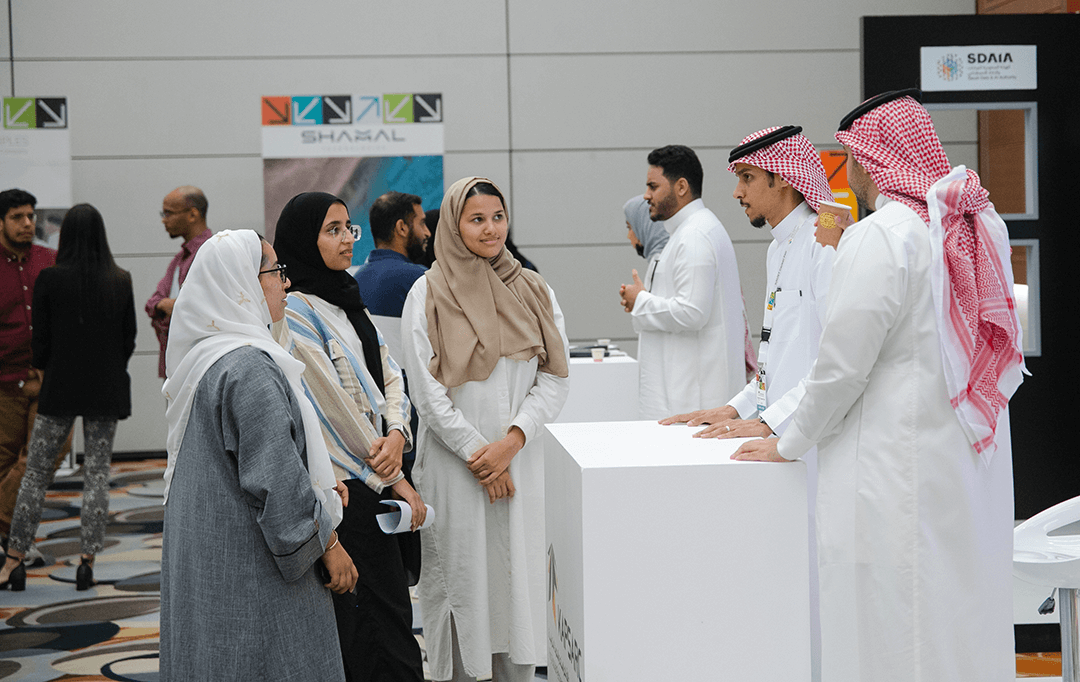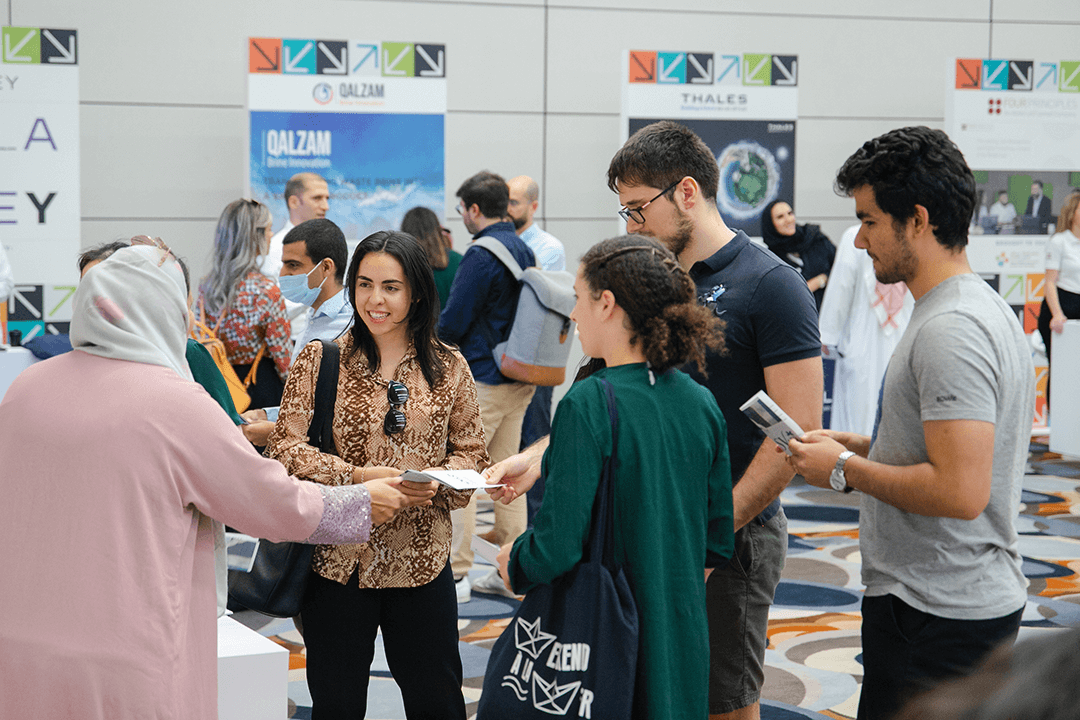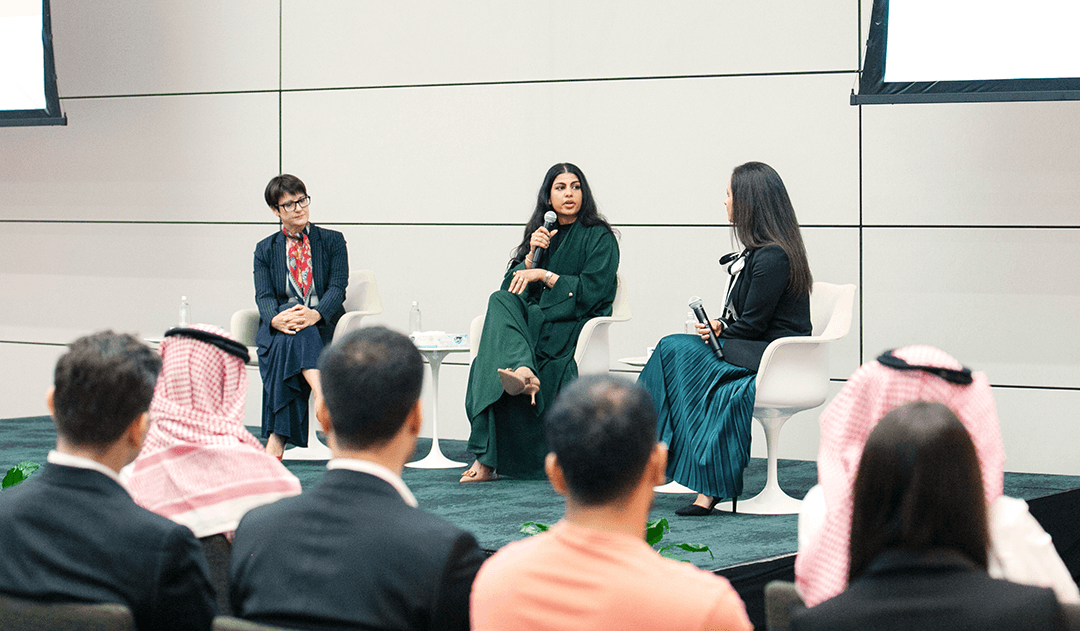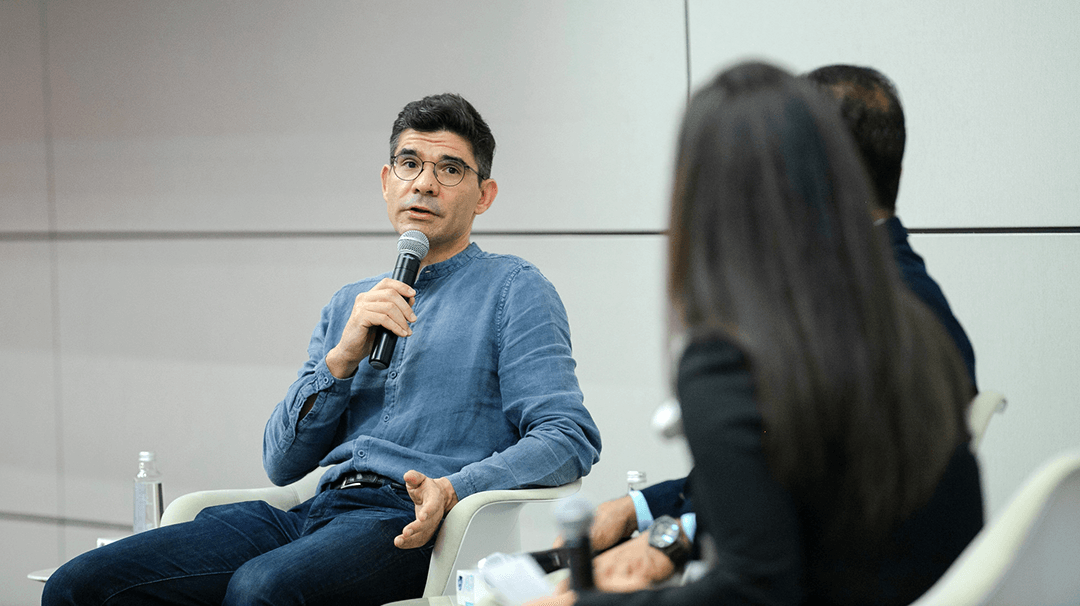Future talent matters

The KAUST Career Fair is an opportunity for employers to showcase technologies and other highlights for prospective employees and other parties. Photo: KAUST
The world-leading graduate research education at King Abdullah University of Science and Technology (KAUST) ensures that young people have the knowledge and training required for a rapidly-changing Saudi economy. Speakers explored this topic during the recent Future Talent Conference: Fireside Talks.
Hosted alongside KAUST’s Spring Career Fair, March 15-16, 2023, the Future Talent Conference built on last year’s successful conference with academic and industry experts discussing market dynamics, technology and the impacts on both employees and employers.
Dr. Najah Ashry, vice-president of KAUST for Strategic National Advancement, said in her opening remarks that as Saudi Arabia undergoes a “massive transformation towards a sustainable future,” the job market must adapt. “It’s going to impact how we look at ourselves and how we define the future.”
Saudi Arabia is changing rapidly, noted Ashry, and with so much investment in the research and innovation ecosystem, the impact on the career paths of Saudi students is apparent. “KAUST is undergoing tremendous changes to be able to support the development of the Kingdom.”
Dr. Dana Al-Sulaiman, assistant professor of material science and engineering at KAUST, said the Kingdom’s Vision 2030 is aligning different industries, programs and people from across the country towards a common cause. “The nice thing about the Vision is it’s really allowing the whole society to hone in on well-defined goals and objectives.”
KAUST not only advances the Kingdom through groundbreaking research, she said, but also by preparing the next generation for opportunities. “Saudi is becoming more diverse in terms of its economy, but the other nice thing is that Saudi is empowering its youth. If you look left, right and center, you’ll see there are many opportunities for educating and empowering this generation, whether it’s through academia, entrepreneurship or industry.”
With a generation of future leaders inspired and educated towards addressing challenges, Al-Sulaiman added, the Kingdom can advance quickly towards prosperity and sustainability. “As long as you’re learning how to learn, and you have the ambition, and you demonstrate that through your activities and your approach, then you’ll go very far.”
Dr. Shinkyu Park, assistant professor of electrical and computer engineering at KAUST, said industry collaboration is key to academic alignment, helping to ensure young people’s education matches the technology research requirements. “When it comes to developing technology, it doesn’t happen by itself. We must make an effort to educate our students and let those students take the lead in the research.”
The Kingdom’s future in part will involve robotics, which presents benefits to businessowners without shortening workforce opportunities, said Fahad Albalawi, visiting associate professor, Berkley University, and senior AI advisor, SDAIA. “We will utilize the human capabilities for much better purposes.”
Going big on SMEs
Vision 2030 aims to increase GDP contributions from small- and- medium-sized enterprises (SMEs) from 20 to 35 per cent. With this increasing SME presence in the overall economy, said Omar Khasawneh, startup incubation lead at KAUST, young people have much more access to capital to start their own companies or join an early-stage enterprise.
Having more SMEs substantially changes the dynamics for attracting and retaining talent with larger employers forced to compete for a limited pool of available skilled workers, he added. “Even big corporates need to change their processes and work culture in order to tap into this young talent pool. Otherwise, they’ll miss out.”

The KAUST Career Fair enables employers from across the Kingdom to connect with talented, STEAM-focused KAUST students and community members. Photo: KAUST
According to Khasawneh, the start-up space and even corporate environments increasingly demand nimble, quick-thinking employees who can adjust with unpredictability. Start-up culture is one in which failure is not stigmatized, he noted, and where people are less afraid to take calculated risks. Universities can reinforce these attitudes.
Saudi-made solutions
SaudiVax is a biotechnology company developing vaccines and biologics, specifically to meet unmet regional medical demands. Along with building a biotechnological ecosystem in the Kingdom, Project Manager Leena Alameer said SaudiVax has a training program to bring more Saudis into pharma. “This program will touch base from the development stage and to the upscaling and marketing stage of new products, and especially of vaccines.”

Tania Tasopoulou, director of Workforce Planning and Development, Beacon Development (left), and Leena Alameer, project manager, SaudiVax, highlight the need for ensuring the right workforce skills are developed and that more Saudis find work in Saudi industries. Photo: KAUST
Tania Tasopoulou, director of Workforce Planning and Development, Beacon Development, cites the Saudi Green Initiative as providing job growth, but also demanding proper workforce skills. “For us, bringing the right people and developing national talent at the same time is something that can only be achieved by having different strategies.”
KAUST is doing an amazing job expanding early-stage educational opportunities, while also providing advanced education empowering workers already in the industry with skills to do their jobs better, added Park. “Our students will be the leaders in technology development — not only at KAUST and in Saudi Arabia, but all over the world.”
A sustainable future
Regardless of whether KAUST students end up in academia, industry or as entrepreneurs, they must learn how to address problems and find sustainable solutions, Al-Sulaiman told the conference. “Sustainability is a very big thing, whether that’s through the healthcare technologies that we’re [developing] or in the energy sector, and we have the [Saudi Green Initiative] as well. Sustainability is something for which there is a big future.”

During the Future Talent Conference: Fireside Talks, Michael Salvador, co-founder, CEO and chief strategy officer, Miral Solar, stresses the importance for those in the industry’s workforce to have a technical, ‘hands-on’ understanding of Saudi Arabia’s solar-energy infrastructure. Photo: KAUST
Michael Salvador, co-founder, chief executive officer and chief strategy officer, Miral Solar, said Saudi Arabia’s renewables sector would benefit from young people obtaining practical understandings of photovoltaics and solar energy — something the KAUST Solar Center technology’s lead laboratory has been organizing.
“The companies see challenges. They want to hire people, and it’s not easy to find people with the right skillsets. There’s a need for higher education, and there’s also a need for people with an elevated level of technical, hands-on skills used in the field, to do the measurements, maintenance and hands-on work.”
Fortunately, added Tasopoulou, the upcoming workforce is passionate and excited about the Kingdom’s future, as well as the future health of the planet. “Sustainability is part of the focus globally, but the Green Initiative here gives a lot of new jobs, opportunities and skills that must be developed. We need to bring the people. We need to educate national talent in order to make it happen. It takes a lot of prep work, but it’s so exciting.”

